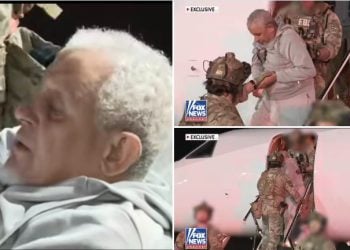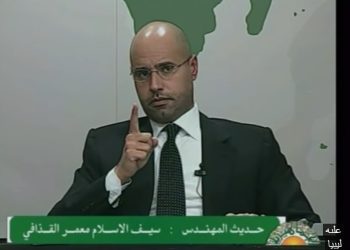By Sami Zaptia.
London, 22 May 2018:
A poll conducted by leading women’s NGO, Libyan Women’s Platform for Peace (LWPP) early this year showed a selection of Libyan actors in a number of Libyan cities in the east, west and south of the country have many important findings regarding the prospects of the transition road map on which the platform has based its report.
In a press release published yesterday, LWPP said that the report examines the positions of a representative sample of Libyans towards the country’s and its stops along the way, as well as the efforts of the United Nations Mission in Libya (UNSMIL), the Ghassan Salama Action Plan, and views on the draft constitution, the entire constitutional process and the possibility of a referendum on the constitution.
The questionnaire also addressed the views of the elite of Libyan stakeholders, in the light of a poll conducted by LWPP in early 2018, in cooperation with a number of local researchers and local partner organizations in a number of Libyan cities in the three regions.
The sample of 203 people was selected according to several criteria. The first of these criteria is to have had extensive experience, including effective and sustained active participation in the work and influencing large areas of the public domain. The second criteria are geographical, cultural and gender representation. Focus groups were held in large Libyan cities in the east, west and south, and cities where focus groups or personal interviews could not be held were replaced by a network survey.
The transition has been marked by a variety of efforts that have been made in the process of crossing into the stabilization phase and completing the restoration of constitutional process. In the face of this, a continuum of crises has emerged at various levels. These crises have prolonged the transition period, which has entered its seventh year, the report said.
During these years, UNSMIL was headed by five heads, each of whom had launched an initiative to contribute to the resolution of existing conflicts and in the hope of putting the country on the threshold of stability. The latest UNSMIL head, Ghassan Salama, launched his initiative as of 22 June 2018, as an attempt to conclude a comprehensive settlement.
A series of questions that impose themselves on Libyan and parties involved: what are the prospects for the transition? Does the crisis dominate the landscape and becomes the title of the transition? What are the chances of the Ghassan Salama initiative?
The report says that the main findings of the poll show that there is an urgent need to correct the diagnosis of the crisis in Libya and its prescription for treatment. The diagnosis that the crisis in Libya is only a political crisis or a political security crisis must be ruled out. It follows that the prescription of the so-called “democratic transition basket”, which focuses on the following mechanisms: the holding of elections, the formation of political parties and the drafting of a new constitution, must be reviewed. It must be realized that the crisis is multidimensional and therefore needs to be conceived with a multi-level solution, the report says.
The poll revealed that Libyans, in general, are not confident that future benefits, such as elections will produce a qualitative leap towards restoring order. However, they have not lost full confidence in the process of restoring the state and were therefore prepared to positively deal with these benefits, the report adds.
Some of the poll results
In reporting its poll findings, the report says that while 70 percent of respondents said they did not agree on holding further elections and wanted to continue the transition, 68.7 percent confirmed that they intend to take part in the upcoming elections, 64percent believe that the elections will not lead to further division, disintegration and fragmentation.
Poll results also showed that 77 percent of respondents felt that the role of UNSMIL was weak to bad. Fifty-eight percent felt that Ghassan Salame followed a radical course of the crisis and did not repeat those of his predecessors, but 58 percent considered the UNSMIL to be unbalanced dealing with Libyan societal rules (the basal approach) preferring to deal with political forces (the vertical approach).
On the constitution, the poll revealed that 79 percent of respondents believed that the constitution needed some amendments before it was submitted to a referendum, otherwise it must be completely scrapped. While 69 percent predicted that the draft constitution would produce a crisis in the future if the referendum were to take place.
According to 62 percent, the Constitution of Independence used during the Kingdom era and before it was abandoned by Qaddafi in 1969, is better than the current draft constitution, while 33 percent prefer to draft a new constitution. Sixty-nine percent said they did not agree on holding elections without a resolution of the constitutional issue (referendum on the draft Constitution or the operationalization of the Independence Constitution).
A poll by a selection of activists in Libya also revealed that 68 percent of respondents believed the National Congress (part of the Ghassan Salame Action Plan) would be a single event while 32 percent expected the National Congress to be a new body.
Recommendations for decision makers in the international community and Libyan officials.
The aim of the poll was to re-examine the transition and diagnose its crises, and to examine the perceptions of the influential Libyan elite for the transition and its crises, based on scientific, objective and impartial criteria, as well as on the realities of the crisis transition and the initiative of the head of the UN mission, Ghassan Salama.
The study concluded with comprehensive recommendations for decision makers in the international community and Libyan officials, foremost of which was the need to avoid future benefits, including elections and referendums, to further division and violence, to maximize the added value they are meant to produce, and the need to unify institutions of the state before proceeding with such benefits. It also concluded that UNSMIL should reformulate its strategy, and that the UN Security Council and the United Nations should adjust the powers given to UNSMIL and modify its structure.
“The consultation procedure is the concept of community participation in contributing to the management of the transition,” says Zahra Langhi, president of the LWPP. The LWPP requests that this report contribute to enriching the thoughtful, intellectual debate on how to cross the transition, which entered its seventh year, to the stage of stability and the full restoration of constitutional life. It also hopes that the report will contribute to the formulation of an integrated strategic vision to this end and to the promotion of all sincere efforts to achieve it. ”
The LWPP, is a women’s NGO founded on 7 October 2011, a movement of women and youth leaders aimed at freedom, equality, social justice, citizenship rights and sustainable peace building.








